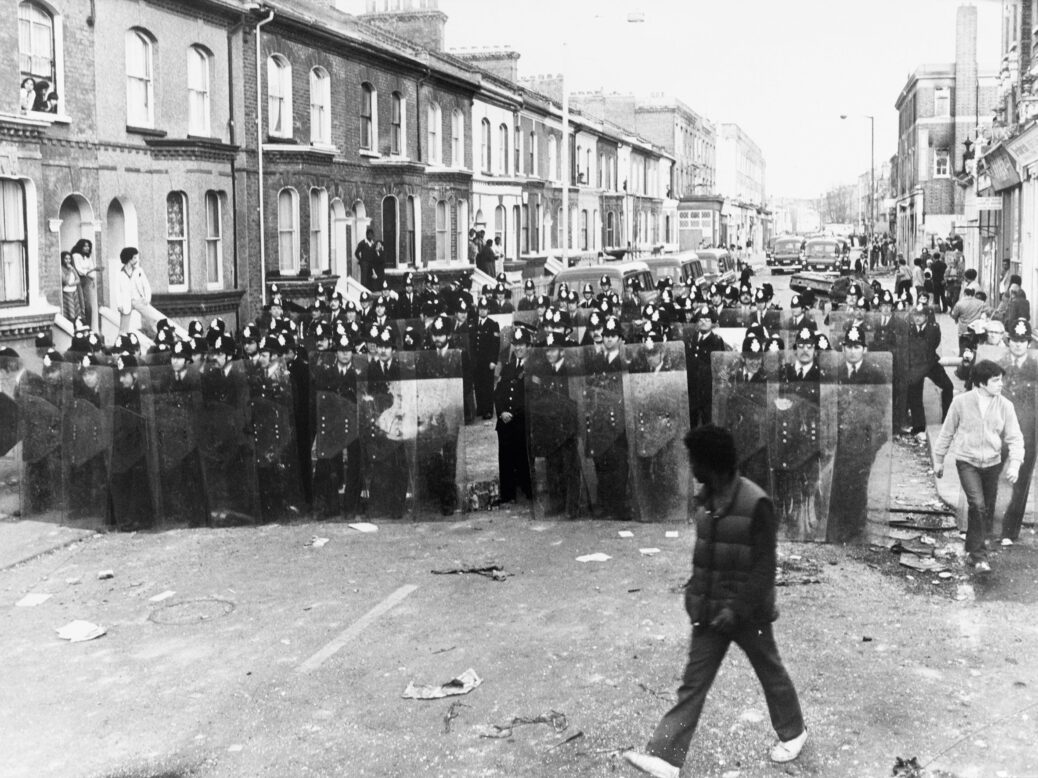
The director Steve McQueen’s docuseries Uprising (streaming in full on iPlayer) is a painful watch by any standards. It is mostly, but not exclusively, about the New Cross house fire of 1981, in which 13 young black people were killed: here is grief and injustice and compacted hatred, and if these things don’t induce in you some shreds of shame, I wonder at the state of your heart. But it’s also – if I’m allowed to say such a thing – exhilarating at times, and not only because it is so well made; so detailed and slyly evocative. Like all good oral history, it’s brutally uncompromising. It won’t prettify, and nor does it censor. It comes with a lot of confusion and contradiction, because no two human beings ever see the same event in precisely the same way, at the same time.
What I’m trying to say, I think, is that if you relish the feeling that your sense of clarity could at any moment be wrestled to the floor by sudden bewilderment (or vice versa), then these documentaries are for you – and especially, perhaps, the final film, which connects the Brixton riots directly to the sense of injustice the black community felt after New Cross (though the survivors and the families of those who died believe the fire was started deliberately, an inquest returned an open verdict). When Sheldon Thomas, a man who was badly burned in the disaster, talked smilingly, in the context of the riots, of the fact that there are “good fires” as well as bad ones, I understood, but I was horrified. Or maybe I mean that I was horrified, but I understood.
[See also: ITV’s Professor T is a lockdown nightmare gone wrong]
As in the first two films in the series, McQueen (12 Years a Slave, Small Axe) and his co-director James Rogan devote time to setting the scene. What was Brixton like in the early Eighties? Christopher Icha, then a music-loving teenager who’d recently arrived from nearby Kennington, thought it a “whole new planet”; Alex Wheatle, who’d grown up in a children’s home in Surrey, happily explained he had to learn the names of the vegetables on offer in the market (this was followed by old footage of a kid helpfully explaining to a journalist that “okra is a thing you put in your dinner”). In some ways, then, it was heaven: a place where black people, having come together, did not have to “run the gauntlet” of everyday racism.
But the police just wouldn’t leave the place alone: as one ex-copper put it, they were “antagonising people endlessly”. The riots began when a man was stabbed, the crowd having mistaken the motives of the policeman who tried to help him. The violence spiralled quickly upwards, terrifying and (for some) thrilling: walls were kicked down, the better that there might be a supply of bricks to hurl; a pub called The George, which locals referred to as “Rhodesia” because it did not welcome black customers, was set alight. For those involved, everything was newly topsy-turvy. Only now the police were scared could Christopher Icha see them as human beings (before they had been “robots”). A young constable called Peter Bleksley suddenly understood himself as “an enemy of the people”, rather than as someone whose job it was to help those in trouble. “It’s all your fault!” shouted a passing vicar at the massed ranks of officers cowering behind their plastic shields.
[See also: There may be little left to say about Love Island – but what does it say about us?]
McQueen and Rogan take a minute-by-minute approach to the riots, only coming up for air once Lord Scarman is appointed by Willie Whitelaw, the then home secretary, to find out why Brixton and so many other places had raged and burned, night after night, in the strange, delusional weeks before Charles married Diana. I remember (just about) Scarman’s patrician stoop; the wonky, almost diffident smile on his face as he visited Railton Road, aka Brixton’s “front line”. I was a nice liberal girl (ish) from a nice liberal home (again, ish), and at the time, I accepted, as most people did, the dominant narrative that deprivation had played a bigger part in the riots than racism. And here I return to my admiration for this series, which has caused me to rethink entirely a conviction held since childhood. How wonderful that television can do this − the medium via which I largely educated myself as a teenager still messing with my head, so many years on.
Uprising
BBC One
This article appears in the 28 Jul 2021 issue of the New Statesman, Summer special





